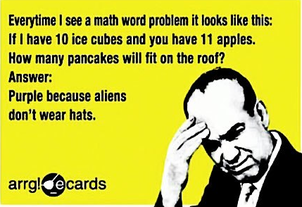|
The parent is as important to the success of any team as the players. It is imperative that coaches and parents work together to help ensure a successful and positive experience for the athlete. As a courtesy, please keep coaches informed of any issues that may be going on with your child. If he or she has been sick, taking medication, have difficulty with school work, etc, please inform their coach as soon as possible. Parents and coaches must communicate with mutual respect, and each reserve the right to postpone conversations that may escalate to a later time and/or date. Heated discussions have no place in front of athletes/players.
Parents (especially ones that are former athletes) should refrain from "coaching" their kids at home and away from practice. They are being taught to play as a team with each player performing specific assignments that his or her teammates can rely on. A player who departs from the game plan to do something a parent(s) has coached them to do is letting down the team, coaches, and him or herself. These actions can potentially open the door for the opponent to win the game, cause a teammate to be injured (depending upon the physicality of the sport). Trust that coaches have what is best for all participants in mind at all times. If you do not believe so, schedule an appointment with the Head Coach away from the practice or game area. This will enable you to express your concerns and get immediate and appropriate feedback in hopes to come to a mutual agreement. Please keep the following in mind as you watch your child/children participate in sports: 1. While competition is great, someone has to lose. There are valuable lessons that can be learned from winning AND losing. 2. How well or poorly they play is not a reflection upon you. 3. Keep it in perspective. Your child may be good, but it is all relative. There are thousands of athletes across the country that are as good or better than your child. The reality is that your he or she will not play professionally or even at the collegiate level. 4. Periodically have a talk with your child/children. Ask if they are having fun and learning from their experience. 5. Avoid living your athletic dream through your child.
0 Comments
 Math. Many people hate it. They feel that there are too many rules, formulas and properties. Your answer is either right or wrong. One can't have an opinion, and adequately support it resulting in a desirable grade. Many students are already pre-condition to dislike math. Often parents mention their difficulty in math classes during their school days and believe that is the reason their child struggles. Not true. Attitude, with a little bit of desire, is everything. If a student wants to do well in math, he or she will put in the effort required to do so. An important part of mathematics achievement that is consistently overlooked (I have witnessed this first hand), is increasing one's number sense through mathematical connections outside of the classroom. When I used to teach elementary school full time, I would attempt to "tap prior knowledge" at the beginning of a math lesson. For example, before starting a lesson on decimals, I would ask "Can anyone tell me where decimals can be seen?" Without fail, each year someone would respond "In the math book!" Well, that is correct but decimals can be seen in many places outside of a textbook or classroom setting. Number sense is defined as an intuitive feel for numbers and a common sense approach to using them. It is a comfort that one has which involves an understanding of how different types of numbers, such as fractions and decimals, are related to each other, and how they can best be used to describe a particular situation. Number sense is a necessary skill of all successful mathematics students, and it can be developed on a daily basis. Many students often do not connect what they are learning in their mathematics classes to what they see, hear and encounter in their daily lives. Problems and numbers that come about in the context of the students’ daily lives are more meaningful to them than traditional textbook exercises and help them develop their sense of how numbers and operations are used. Frequent use of estimation and mental computation skills is very important in developing good number sense. Here are some examples (there are many more) for students to use math outside of the classroom that don't require a lot of materials: 1. Calculating gratuity after a meal at a restaurant (percent, multiplying decimals) 2. Calculating how many gallons of gasoline can be purchased based on the price per gallon and how much is paid (multiplying decimals) 3. Cooking/baking (fractions) 4. Simple home projects [e.g. applying shelving paper] (measurement, finding area) 5. Calculating change after a store purchase (mental subtraction) 6. Calculating the cost of an item on sale in a store (fractions, decimals, percent) 7. Estimating the cost of items while shopping (rounding, estimating) 8. Traveling through time zones (elapsed time) 9. Identifying geometric shapes (e.g. railroad tracks = parallel lines, stop sign = octagon) 10. Create a scale drawing of the neighborhood (map scale)  The difficult part of a word problem (aka story problem/number story) is understanding the problem and deciding what operation needs to be performed to solve it. Here is a four step process that can be used each time you are attempting to solve a word problem: 1. Read and Understand
2. Look for Clue Words/Develop a Plan of Action
3. Carry Out the Plan
4. Check Your Answer to See if it Makes Sense
*Below is a list of commonly used clue words for word problems grouped by operation: Addition
Have you ever wanted a more visual approach when you're looking for the meaning of a word? Well, here it is! Visuwords is an online visual, graphic dictionary that lets you look up words and find how they are associated with other words. It produces diagrams reminiscent of a neural net. The different colors represents verbs, nouns, adjectives etc. and you only have to add a word to get started.
http://www.visuwords.com/ |
AuthorRandy Sally Archives
June 2023
Categories
All
|


 RSS Feed
RSS Feed
